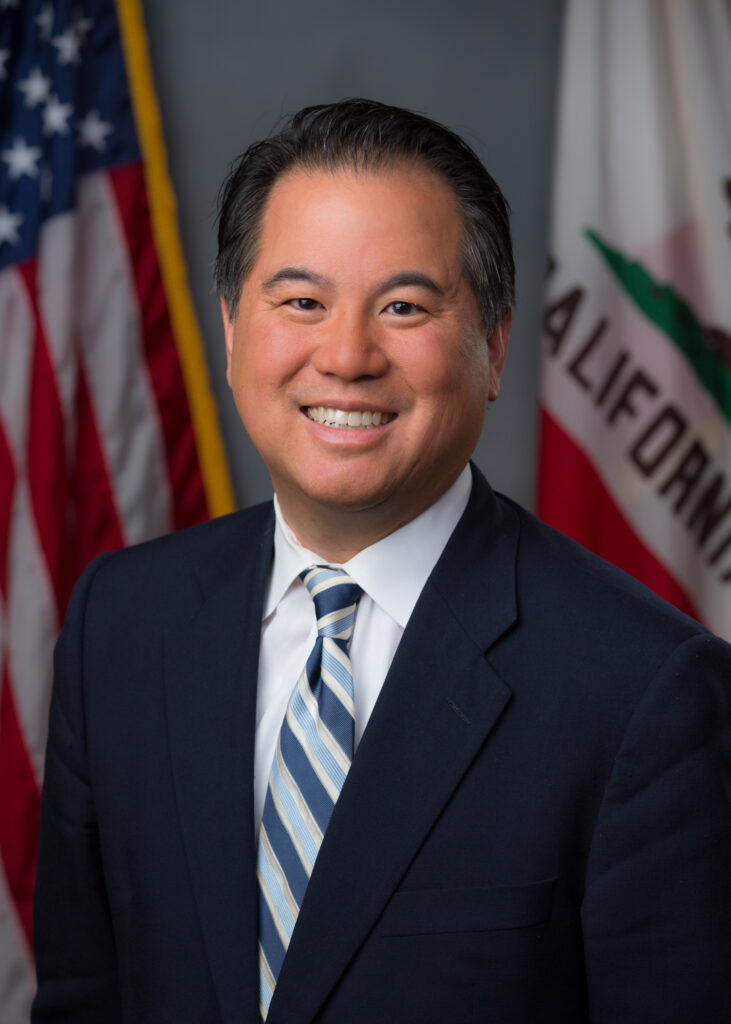To level the playing field for students, California’s private colleges are now banned from favoring children of donors and alumni.
The new law authored by California Assemblymember Phil Ting (D-San Francisco), signed by Governor Newsom in September 2024 and taking effect September 2025, comes in the shadow of the overturning of affirmative action by the federal Supreme Court in June 2023.
“I wasn’t surprised we got this bill through on the heels of affirmative action. It was the right time,” said Ting in a Thursday, November 7 interview with Ethnic Media Services. “If you can’t offer preferential treatment based on race to address past racial discrimination, why would you continue providing preferential treatment for the richest Americans, who can buy every level of support for their children in the admissions process?”
During the Supreme Court affirmative action ruling, Justice Neil Gorsuch, who concurred with the 6-3 decision, criticized legacy admissions as “undoubtedly benefit(ing) white and wealthy applicants the most.”
The original version of Ting’s bill, AB 1780, would have forced California’s private nonprofit colleges considering legacy in admissions to pay a fee equalling the amount they receive in Cal Grants, the state’s main tuition aid for low-income students.
In 2023, over 25,000 California private college students received about $230 million in Cal Grant funds.
However, after the Association of Independent California Colleges and Universities — a coalition of over 80 such schools — opposed the bill, an amended form was passed which only has the schools appear on a list by the state Department of Justice.
This version, which passed with 55 assemblymembers in favor and none opposed, is similar to AB 697, a 2019 bill by Ting which requires private universities and colleges to annually report their legacy admissions data.
“This is a common practice,” Ting explained. “Where we have bills without fines or fees in them, we rely on the Attorney General to enforce the law, so the Attorney General’s Office would have the opportunity to sue the universities that don’t comply.”
“The opposition’s main argument is that ending legacy admissions will impact their ability to fundraise, which I think is disingenuous, because they don’t openly advertise: ‘If you give us $5 million, we’ll admit your child,’” he continued. “By saying that this will impact your fundraising, aren’t you admitting that money tips the scale in your admissions process?”
“The schools self-report their admissions data, so the state relies on it without verifying it, which is a whole issue of its own — and even with this, these numbers are surprisingly high,” he added.
In 2022, for instance, legacy admissions accounted for roughly 14.4% of enrollment at the University of Southern California, 13.8% at Stanford University and 13.1% at Santa Clara University.
That year, over 3,300 out of 31,633 undergraduates admitted to California’s over 100 private colleges and universities were legacy admissions.
“This bill got bipartisan support. Look at the Supreme Court with affirmative action — I don’t think it’s a partisan issue that legacy admissions is a practice that can’t be defended anymore,” said Ting.
According to a 2022 Pew Research poll, 75% of Americans believe that legacy admissions should not factor into college admissions.
The same poll found that public disapproval of affirmative action varies more among partisan lines.
Among Republicans, 87% disapproved of affirmative action, compared to 62% of Democrats.
Along racial and ethnic lines, 79% of White adults disapproved of affirmative action, compared to 68% of Hispanic adults, 63% of Asian Americans and 59% of Black adults.
A 2023 Pew poll found that, overall, about 50% of Americans disapproved of selective colleges and universities taking race and ethnicity into account to increase diversity; 33% approved and 16% were unsure.
Given this general public disapproval of legacy admissions, Ting said he foresaw no impact to the enforcement of his bill with a new administration under President-elect Donald Trump.
The bill joins California to four other states that have banned legacy admissions for private or public colleges and universities: Illinois, Maryland, Virginia and Colorado.
A ban of all legacy admissions in public and private colleges, the Fair College Admissions Act, is pending in New York.
“In developing this bill, we looked most closely at New York’s legislation, which involves a straight ban, and then a fine,” Ting explained. “The first time I had done this bill was in 2019. We weren’t able to get it through, so we switched it to the data collection bill that passed… That data was quite helpful to pass the bill this year, as we could get a picture of many legacy admits these universities had.”
What’s the biggest hurdle that remains to level the playing field for California students?
“Not everybody gets equal access to K-12 education, particularly low-income students,” he said. “But the main difference from when I was applying to college over 30 years ago — and I’m watching this with my daughter, who’s applying now — is that there are far more students applying for barely more seats. Private universities just aren’t keeping pace with the demand.”
This coverage is made possible through the Ethnic Media Services / AAJC reporting project on diversity after affirmative action.





